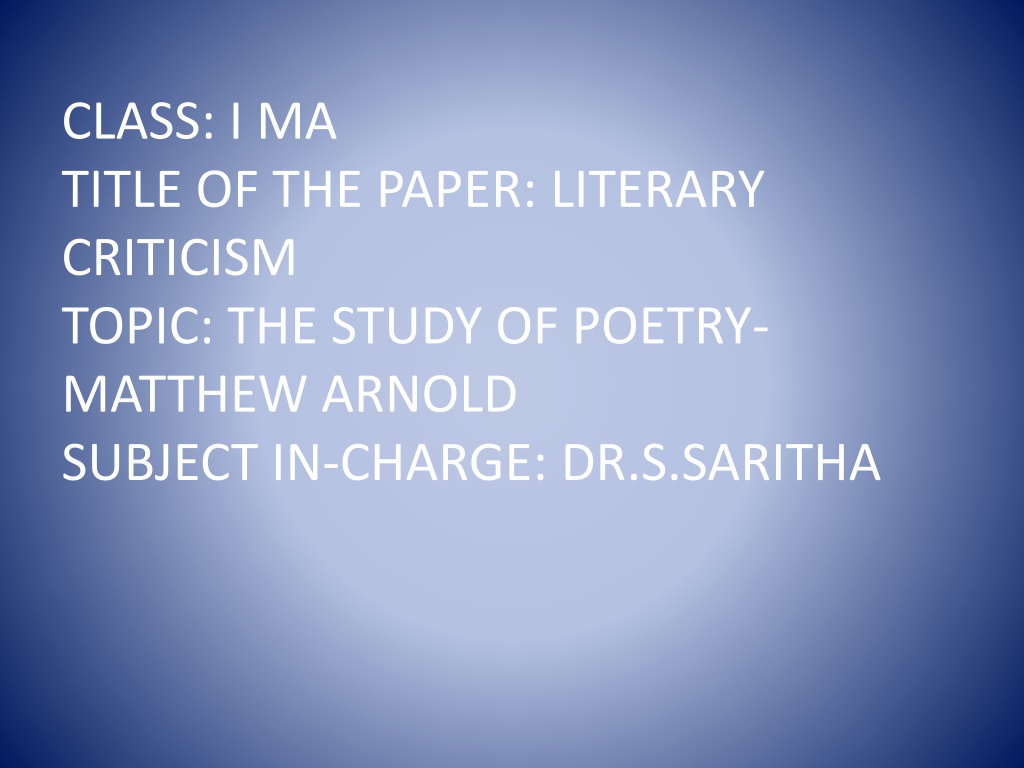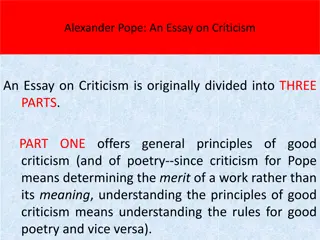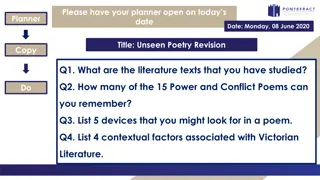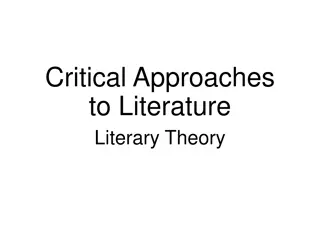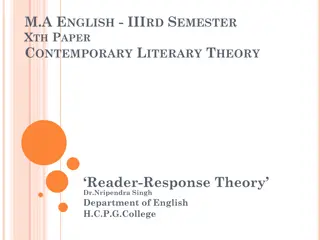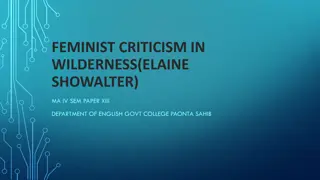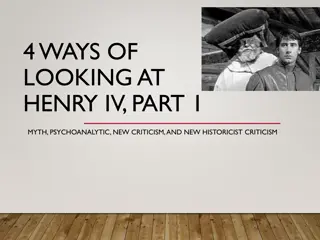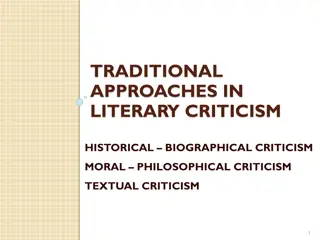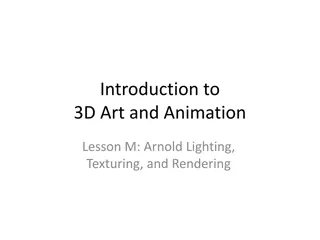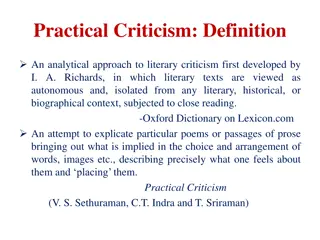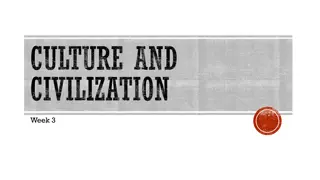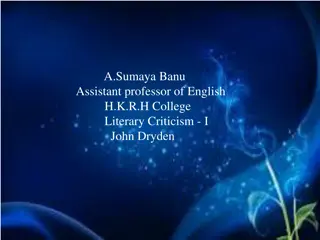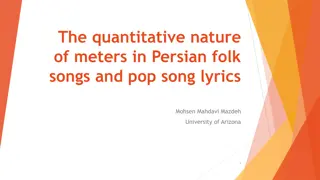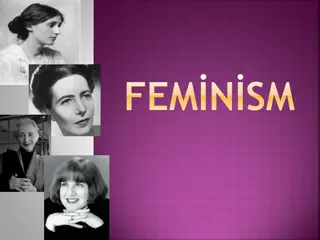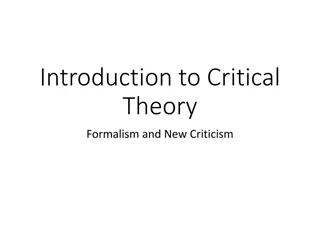Matthew Arnold's Literary Criticism: The Study of Poetry
Explore Matthew Arnold's approach to literary criticism focusing on the study of poetry. Arnold's work as a critic of literature, society, and religion is discussed, emphasizing his three estimates of poetry - the Real Estimate, the Historic Estimate, and the Personal Estimate. The Real Estimate highlights true excellence, the Historic Estimate delves into the poet's historical context, and the Personal Estimate reveals the influence of personal affinity on poetic judgment. Arnold's Touchstone method for evaluating poetry is also examined.
Download Presentation

Please find below an Image/Link to download the presentation.
The content on the website is provided AS IS for your information and personal use only. It may not be sold, licensed, or shared on other websites without obtaining consent from the author. Download presentation by click this link. If you encounter any issues during the download, it is possible that the publisher has removed the file from their server.
E N D
Presentation Transcript
CLASS: I MA TITLE OF THE PAPER: LITERARY CRITICISM TOPIC: THE STUDY OF POETRY- MATTHEW ARNOLD SUBJECT IN-CHARGE: DR.S.SARITHA
INTRODUCTION TO MATHEW ARNOLDS THE STUDY OF POETRY Mathew Arnold has written all his prose material in the form of essays. Arnold s prose is essentially the prose of a poet His verse belongs to the earlier pat and his prose and essay to the later part of his literary career. All Arnold s works are critical. He is a critic of literature , a critic of society and a critic of religion.
Three estimates of Poetry (or) the Fallacies in the judgement of Poetry The Real Estimate The Historic Estimate The Personal Estimate
THE REAL ESTIMATE Real Estimate is the only true estimate which is not affected by any kind of estimate. It is present in our minds and governs our estimates of what we read. The benefit of Real Estimate is high and it is the benefit of clearly feeling and deeply enjoying the real excellence, the true classic in poetry. Everything depends on the reality of a poets classic character. Arnold says that if a poet is truly a classic, his poetry will have the reader real pleasure and enable him/her to compare with other poetry which are not the same high standard.
THE HISTORIC ESTIMATE The Historic Estimate places the historic context above the value of the art itself. The historic and personal estimate often overshadows the real estimate. But Arnold also says that it is natural. It is fallacious estimate that deals with the poets of past.When we are affected by poet s historical background, we may easily consider his poetry of more importance than in reality it is. We must over rate it.So, this type of fallacy is caused in judgement by historical estimate.
THE PERSONAL ESTIMATE It also fallacious estimate that deals with the contemporary poets. Our personal affinities, likings and circumstances have great power to sway our estimate. Due to our personal likings we give more importance to that poetry which does not deserve that much importance. So, second fallacy in our poetic judgment is caused by personal estimate.
TOUCHSTONE METHOD To find which poetry is the best, Matthew Arnold suggests a method known as Touchstone method'. This method was introduced into his work The study of Poetry . Purposes of his method: Select some best lines from the well-know poetry; Compare it with other poets; Define and evaluate with different measurement; and Pass the judgment.
TOUCHSTONE METHOD Basically , the method is being used to comparing and evaluating. Some model lines from the great masters of the past wii be used as touchstones to test new poems. He quotes from Homer, In his will is oyr peace . From Shakespeare, if though didst ever held me in thy heart/Absent in pain/ To tell my story From Milton , And the courage never to submit or yield/And what is else not to be overcome These lines may be different , but there is one thing common in them, the very highest poetic quality".These few lines can guide us properly to judge our own and others poems properly.
